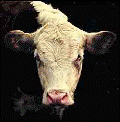Animal Science, Department of

Department of Animal Science: Dissertations, Theses, and Student Research
First Advisor
Thomas E Burkey
Second Advisor
Lisa K Karr
Date of this Version
Spring 5-2020
Document Type
Dissertation
Citation
Winkel, S. M. 2020. Evaluation of Maternal diet and its Effect on Milk Composition and Piglet health and Growth Performance. Dissertation
Abstract
Both graduate research and graduate teaching duties work together to help to develop a graduate student’s skills both in the classroom and on their research experiments. Being both a GTA and GRA allows a student to form more sound hypotheses, connect better with students, and better understand their own research.
During the time as a GTA and GRA four surveys were developed to analyze different groups of students and their learning environment and two animal experiments were conducted to evaluate maternal diet and its effect on milk composition and piglet health and growth performance
The surveys given to students consisted of multiple choice, fill in the blank, and Likert scale type questions. All surveys were taken anonymously, and no revealing information was asked. Upon the completion of each survey, they were analyzed. Improvements and strong points among each topic were noted and discussed. Survey topics included in this analysis were; the use of case studies in vet school, an assessment of the animal science department through an animal science senior survey, why students chose the animal science major, and the evaluation of undergraduate research at UNL.
The animal research that was conducted was done on 2 separate batches of sows. The first experiment consisted of batch 16 parity 1 sows. Sows were fed either 1) Control diet formulated to NRC (2012) specifications (CTL); 2) Restricted (20% energy restriction via addition of 40% soy hulls; RESTR); and 3) Control diet plus addition of crystalline amino acids equivalent to the SID Lys:ME of the RESTR diet (CTL+). during the gilt development stage of days 123-240. Diet may be correlated with milk peptide composition and fecal microbiome of the piglet.
The second experiment focused on batch 17 parity 4 sows (n = 30). Sows were all on a common gestation diet except 10 had the recommended value of a probiotic toped dressed on their feed, 10 were a control, and 10 had 5% more than recommended value of the probiotic top dressed on their feed. The top dressing was started on day 80 and continued until farrowing. Sow diet during gestation may affect the milk composition and piglet microbiome and piglet performance.
Advisors: Thomas E. Burkey and Lisa Karr
Included in
Agriculture Commons, Animal Sciences Commons, Education Commons


Comments
A DISSERTATION Presented to the Faculty of The Graduate College at the University of Nebraska In Partial Fulfillment of Requirements For the Degree of Doctor of Philosophy, Major: Animal Science (Non-Ruminant Nutrition), Under the Supervision of Professors Thomas E. Burkey and Lisa Karr. Lincoln, Nebraska: May. 2020
Copyright 2020 Shana Marie Winkel